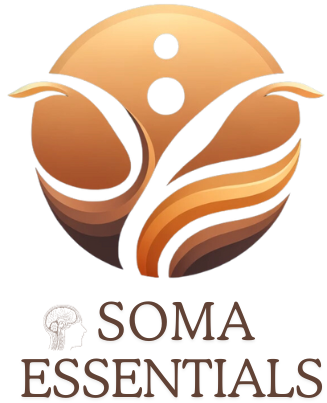What Are Some Specific Mind-body Exercises Or Therapies That Have Proven Beneficial For Overall Well-being?
Explore the expansive world of wellness in this insightful discourse as we consider various mind-body exercises and therapies that science has shown possess significant benefits for overall well-being. These holistic practices promote better physical health, bring balance to your mental landscape, and enhance emotional stability. This article seeks to present you with the knowledge you need to elevate your wellness journey, offering a deeper understanding of these potent exercises and therapies and the ways they foster improved health and harmony throughout your life.

Understanding the Mind-Body Connection
The mind-body connection defines a powerful relationship between our mental and physical health. Science has extensively studied this link, revealing that our thoughts, feelings, beliefs, and attitudes can positively or negatively affect our biological functioning. This means that our mind directly impacts our physical health, and vice versa.
The science behind the mind-body connection
The scientific study of the mind-body connection has significantly contributed to our understanding of health and disease. Brain imaging techniques reveal even our subjective experience of emotions and thoughts can initiate biochemical processes that affect our physical health, contributing to conditions like heart disease, digestive disorders, and immune system function. This demonstrates that our mental state not only reflects physical health but can drive it.
The role of wellness in mental and physical health
Wellness plays a crucial role in mitigating the impact of mental stress on physical health. It encompasses an active pursuit of activities, choices, and lifestyles that lead to a state of holistic health. This includes maintaining a balanced diet, regular physical activities, adequate sleep, stress management, and beneficial social interactions.
Yoga Practices
Yoga offers myriad benefits for mental and physical well-being. It’s a form of exercise that powerfully demonstrates the mind-body connection and positions it as central to health and wellness.
Physical and mental benefits of yoga
Yoga brings about various physical benefits, including increased flexibility, improved muscle strength and tone, improved respiration, energy and vitality, balanced metabolism, and weight reduction. Mental benefits include stress reduction, improved concentration, increased self-awareness, and emotional well-being.
Different types of yoga and their specific benefits
The types of yoga are diverse, each offering unique benefits. Hatha Yoga, for example, focuses on physical exercises and breathing control, which can aid in meditation. Ashtanga Yoga incorporates eight parts, or “limbs,” that cleanse the body and mind to enlighten the spirit within. Iyengar Yoga concentrates on the accuracy of movements and postures. Each form of yoga can meet different wellness needs and goals.
How to incorporate yoga into daily routine
Yoga can be integrated into your daily routine in many ways. This may include taking yoga classes, following yoga videos at home, or even doing a few minutes of mindful stretching upon waking up or before going to bed. Consistency is key – even short daily sessions can yield significant benefits over time.
Meditation and Mindfulness
Meditation and mindfulness practice encourage improved emotional health, enhanced self-awareness, lengthened attention span, and even slowed aging, among other health benefits.
Different forms of meditation
Meditation comes in numerous forms, including mindfulness meditation, spiritual meditation, focused meditation, and movement meditation. Each form serves different purposes ranging from stress relief, increased self-awareness, enhanced peace and well-being, improved focus, and a strengthened connection with the body.
Benefits of mindfulness techniques
Mindfulness techniques pose significant benefits, including reduced rumination, stress reduction, improved working memory, and decreased emotional reactivity. Regular practice can result in increased cognitive flexibility, relationship satisfaction, and enhanced overall well-being.
Scientific evidence supporting meditation for stress relief and mental health
Numerous studies affirm meditation’s benefits for mental health. For example, research published in JAMA Internal Medicine found that meditation significantly reduced anxiety, depression, and pain in some medical patients. Other studies have shown how meditation physically changes the brain, strengthening areas associated with happiness and emotional control.

Tai Chi and Qi Gong
Tai Chi and Qi Gong are forms of mind-body exercises that originated in ancient China. They blend relaxed, flowing movements with deep breathing and mental engagement to promote wellness.
The principles of Tai Chi and Qi Gong
Both Tai Chi and Qi Gong operate on the principles of traditional Chinese medicine. Each movement is designed to stimulate the flow of ‘qi’ or life energy, throughout the body. This promotes health and tranquility by balancing Yin and Yang—the polar yet interconnected forces within the body.
Physical and mental benefits of Tai Chi and Qi Gong
These practices offer numerous benefits, including improved balance and coordination, increased strength and flexibility, reduced stress and anxiety, and enhanced mental clarity.
Practical tips for incorporating Tai Chi and Qi Gong into wellness practice
You could incorporate Tai Chi or Qi Gong into your wellness routine by taking classes, watching instructional videos, or practicing independently. Regular, consistent practice, even in short sessions, will yield the most significant benefits.
Biofeedback Therapy
Biofeedback is a mind-body therapy that enables you to harness the power of your mind to influence bodily functions and improve health.
Understanding what is Biofeedback
Biofeedback refers to a technique that trains individuals to control physiological processes such as muscle tension, blood pressure, or heart rate. These processes usually occur involuntarily, but biofeedback aims to bring them under voluntary control.
Benefits of Biofeedback therapy for stress and anxiety
Biofeedback therapy has been shown to be effective in managing various physical and mental health conditions. Particularly, it’s valuable in managing stress and anxiety by helping individuals recognize stress signals in their bodies and learn to control them.
How Biofeedback works
During biofeedback, you’re connected to electrical sensors that give information (feedback) about your body (bio). This feedback helps you focus on making subtle changes in your body, such as relaxing certain muscles, to achieve the results you want.
Hypnotherapy
Hypnotherapy harnesses the power of suggestion while one’s mind is in its most susceptible state.
The science behind Hypnotherapy
Hypnotherapy uses guided relaxation techniques, intense concentration, and focused attention to achieve a heightened state of awareness or trance-like state. During this process, your attention is so focused that anything happening around you is temporarily blocked or ignored.
Various uses and benefits of Hypnotherapy
Hypnotherapy can be used to control or better handle undesired behaviors or to manage and alleviate the perception of pain. Its benefits are expansive; it has been successfully used to treat various physical, psychological, and behavioral issues.
Debunking myths about Hypnotherapy
Despite many misconceptions, hypnotherapy doesn’t involve being put into a deep sleep or losing control of your behavior. Instead, a person remains in control during hypnosis and retains full ability to recall the session afterward.
Aromatherapy
Aromatherapy utilizes therapeutic-grade essential oils to enhance emotional and physical well-being.
The power of scents on the brain
Scents have an exceptional capacity to trigger physical and emotional responses. When we inhale an aroma, it connects with our olfactory nerves, located at the back of the nose, directly connected to our brain. This triggers our limbic system, associated with our emotional life and memories.
How aromatherapy contributes to well-being
Aromatherapy can reduce stress, improve sleep, alleviate headache, manage pain, and increase energy levels. Different essential oils possess different properties that contribute to these health effects.
Safe practices with aromatherapy
To use aromatherapy safely, always dilute essential oils before applying them to the skin, and consider any potential allergies or interactions with medications.
Physical Activity and Exercise
Physical activity and exercise have been shown to have significant benefits on mind and body, improving physical health and mental well-being.
How regular exercise benefits the mind and body
Regular exercise is one of the most effective ways to improve mental health. It reduces depression, anxiety, negative mood, and improves self-esteem and cognitive functioning.
The link between physical activity and mental health
Physical activity increases the production of endorphins, the brain’s feel-good neurotransmitters, leading to feelings of happiness and euphoria. It also boosts overall mood, decreases stress, helps you sleep better, and improves self-confidence.
Different types of exercise for mental wellness
Different forms of exercise can positively affect mental health. For example, aerobic exercises like running and biking reduce anxiety and depression while improving mood and sleep quality. Strength training builds self-esteem and cognitive function, while yoga and pilates enhance body awareness and reduce stress.
Art Therapy
Art Therapy is a form of expressive therapy that utilizes the process of creating art to improve physical, mental, and emotional wellness.
Understanding art therapy and its principles
The principle underlying art therapy is the idea that creative expression can foster healing and mental well-being. It’s based on the belief that the creative process involved in artistic self-expression helps people to resolve conflicts and problems, reduce stress, increase self-awareness, and achieve insight.
Mental health benefits of art therapy
Art therapy can provide mental health benefits such as reducing stress, improving self-esteem, providing insight, aiding in social skill development, and assisting emotional reconciliation.
How to incorporate art therapy into everyday life
Incorporating art therapy into everyday life doesn’t necessarily require a professional art therapist. You can start by making time for creative practices that you enjoy, such as drawing, painting, or journaling. Understand that the process, not the final product, is the therapeutic component of art therapy.
Massage and Bodywork Therapies
A diverse range of bodywork therapies aims to promote healthier bodies and minds. Using varying techniques, therapists manipulate the body’s muscles and tissue to alleviate stress and tension.
Benefits of different types of bodywork therapies
Various bodywork therapies, such as Swedish and Deep Tissue Massage, Reiki, and Shiatsu, offer their unique benefits. These range from alleviating musculoskeletal pain, easing anxiety, boosting mood, improving sleep, and enhancing overall well-being.
Impact of massage on mental health
Therapeutic massage can significantly improve mental health by reducing stress hormones while boosting ‘feel-good’ hormones. It further helps to manage anxiety and depression, enhances sleep quality, and amplifies feelings of comfort, connection, and self-awareness.
How to incorporate massage into a wellness routine
Integrating massage into your wellness routine can be as simple as scheduling regular sessions with a professional massage therapist, using self-massage techniques at home, or utilizing tools like foam rollers or massage balls. Consistency is key to yield optimal results.

